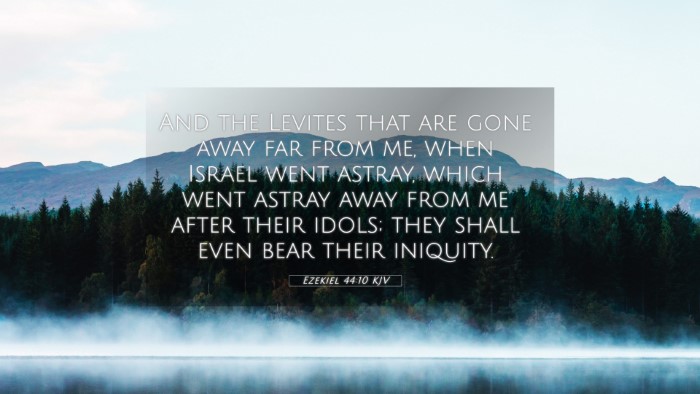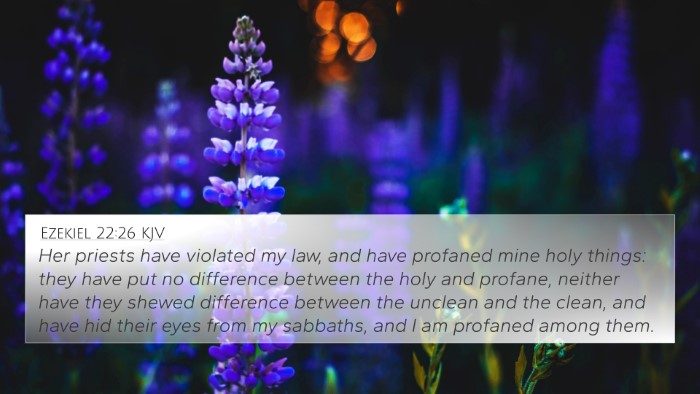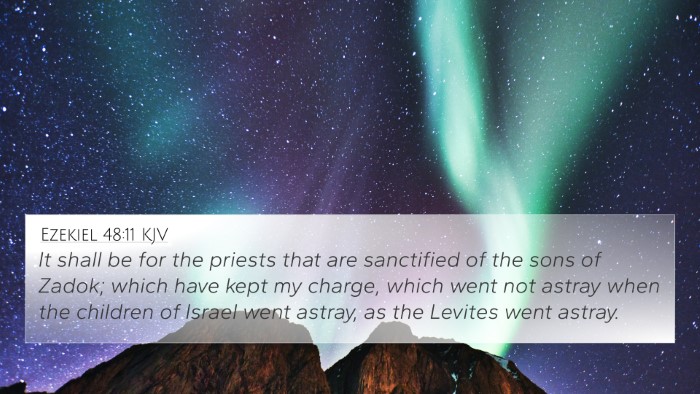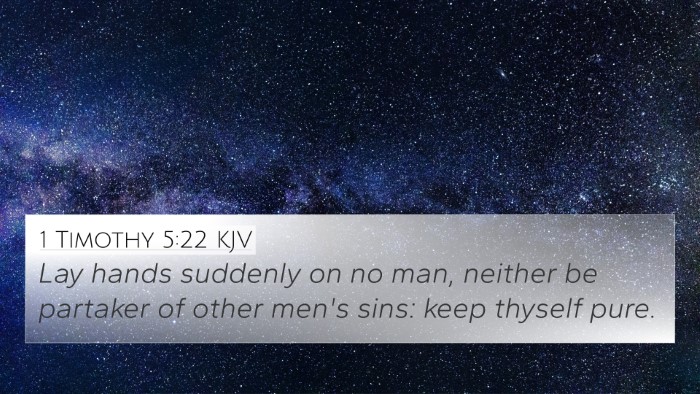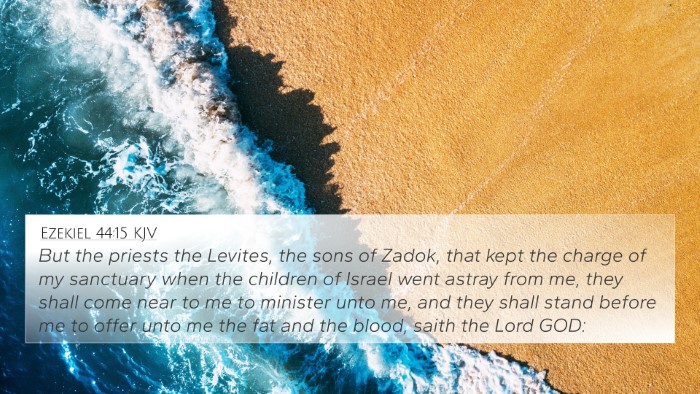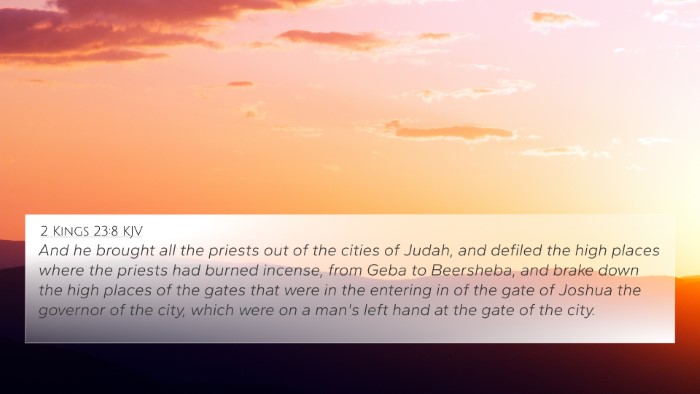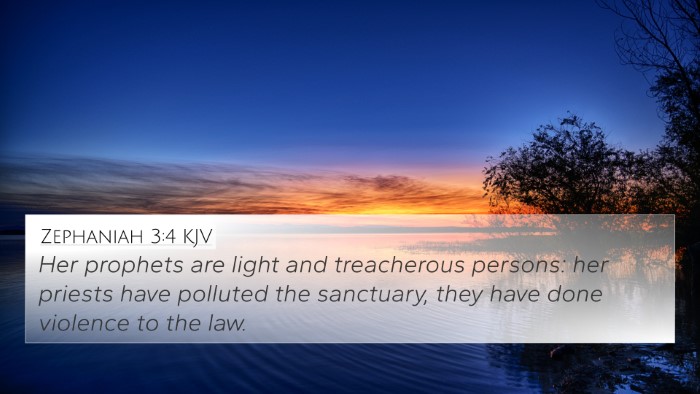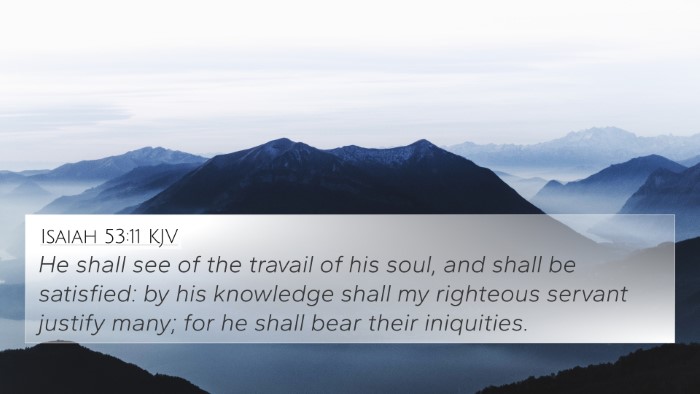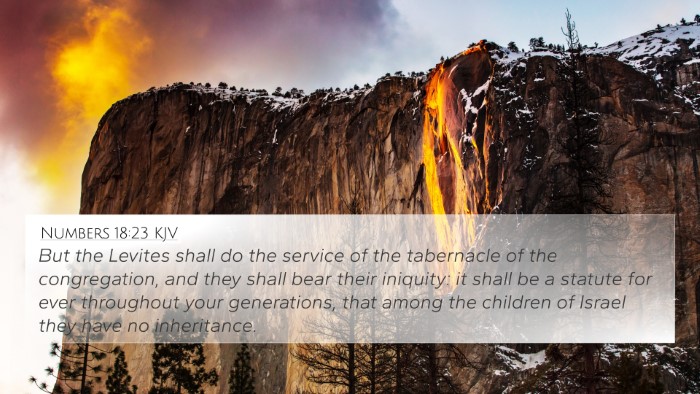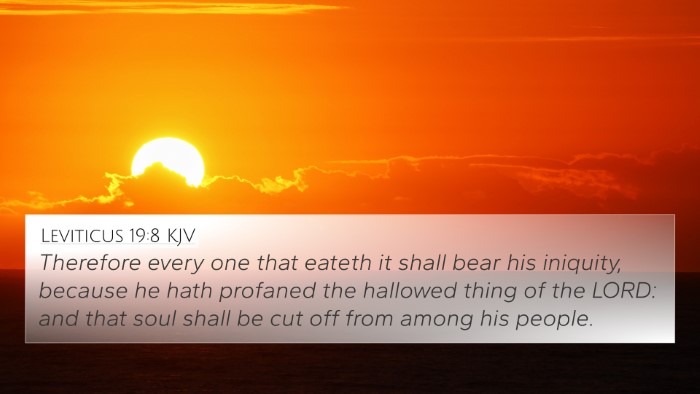Ezekiel 44:10 - Understanding the Meaning of the Verse
Bible Verse: Ezekiel 44:10 - "And the Levites that are gone away far from me, when Israel went astray, which went astray away from me after their idols; they shall even bear their iniquity."
Summary of Insights
This verse speaks about the Levitical priests who had left their duties when Israel turned to idolatry. It expresses God's judgment on them while simultaneously highlighting the possibility of restoration. The verse encompasses themes of accountability, repentance, and the consequences of turning away from God.
Contextual Background
The context of Ezekiel 44 addresses the future temple and the restored worship practices in Israel after the exile. God, through Ezekiel, emphasizes the roles and responsibilities of the Levites, who were the tribe set apart for priestly duties. They had an essential role in maintaining the holiness of worship in Israel.
Interpretations from Public Domain Commentaries
- Matthew Henry: Henry explains that this verse highlights the failure of the Levites to uphold their covenant with God. Their departure into idolatry serves as a reminder that neglecting spiritual duties leads to dire consequences. However, he also notes that God's mercy allows for a path to repentance and restoration.
- Albert Barnes: Barnes points out that the Levites had a crucial role in teaching the law and being mediators between God and the people. He stresses that their falling away demonstrates the importance of maintaining faithfulness in one's spiritual responsibilities. Yet, the verse also aims to invoke a desire for repentance among those who strayed.
- Adam Clarke: Clarke comments on the significance of the Levites' actions. He indicates that their "iniquity" is a reference to spiritual guilt. Clarke further explores the implications of God's judgment and calls attention to the need for true worship, diverging from the idolatrous practices that brought them to this point.
Key Themes and Lessons
- Accountability: The verse emphasizes that there are consequences for deviating from God’s path. The Levites’ actions serve as a warning against spiritual neglect.
- Repentance and Restoration: Despite their failures, there remains hope for redemption, illustrating God's mercy and the potential for renewed commitment to His commands.
- The Role of Leadership: The verse underscores the critical responsibility of spiritual leaders to guide their communities faithfully and avoid idolatry.
Bible Cross References
- Ezekiel 43:10 - A clarification of the priests' responsibilities.
- Jeremiah 23:11-12 - Similar themes of judgment against unfaithful leaders.
- Leviticus 10:1-3 - Establishes the holiness expected from the priesthood.
- 2 Chronicles 29:5 - Hezekiah’s reforms highlight turning back to true worship.
- Hosea 4:6 - God's people are destroyed for lack of knowledge, reflecting spiritual neglect.
- Hebrews 5:1 - Understanding the role of a priest in mediating for the people.
- 1 Peter 2:9 - The call for believers to be a royal priesthood.
- Psalm 119:51 - A personal reflection on the turning away from God's statutes.
- Proverbs 28:13 - The importance of acknowledging and forsaking sin for mercy.
- Revelation 2:5 - A call for repentance, paralleling the notion of returning to God.
Conclusion
Ezekiel 44:10 serves as a powerful reminder of the profound consequences of spiritual neglect and idolatry. It urges a reflection on accountability, the need for repentance, and the potential for restoration. Utilizing various biblical cross-references enriches the understanding of this verse, drawing connections between passages and themes that run throughout Scripture.
Further Study Tools
- Bible Concordance: Useful for locating key terms and themes related to priesthood and idolatry.
- Bible Cross-Reference Guide: A resource for in-depth study of interconnected verses.
- Cross-Reference Bible Study Methods: Techniques for exploring thematic connections between biblical texts.
- Comprehensive Bible Cross-Reference Materials: Detailed studies that enhance understanding of scripture through cross-referencing.

